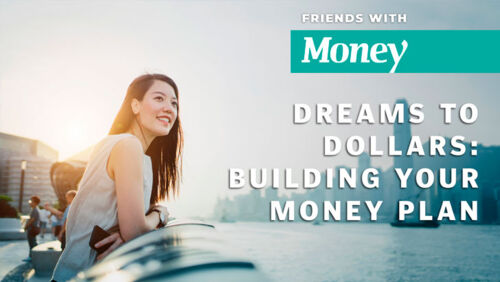Our spending habits have been broken and that's not a bad thing
By Phil Slade
During the pandemic, one of my sons had the good fortune of having a job at a local supermarket. This gave him front-row tickets to the Covid-19 human behaviour experiment.
At the height of the toilet paper panic, he was given the task of rolling a pallet of deluxe 18-pack toilet paper from the storeroom into the supermarket aisle - a simple two-metre, five-second trek from storeroom door to shelf. Pulling the trolley behind him at a slow pace befitting most teenage supermarket workers, he cautiously approached the store door and headed into the supermarket.
By the time he reached the shelves seconds later, he turned to find the palate completely empty. Not a single pack of deluxe paper even made it to the shelf.
A lot has been written about the psychology behind panic buying and I'm not going to extrapolate on that here. What it highlights to me, however, is that people's spending habits and budgets have been thrown out the proverbial window. ABS statistics report Australians have spent 18% less overall while in quarantine, with overall wages dipping around 6.7%.
Even with petrol prices plummeting and a dramatic reduction in work-related, entertainment, health and leisure expenses during lockdown, many people don't seem to be better off financially. Of course, changes in employment status and an increase in spending related to the home office, home renovations, online food delivery and general panic purchasing account for much of this.
But the point is that old spending habits have been broken.
This pandemic has forced us to break with past habits and attitudes and imagine our world anew. It is a portal, a gateway between the old and the new. As we emerge from the crisis, we need to take this opportunity to create our new world, and not just blindly go back to the way we were doing things.
There are definitely many elements of the lockdown we will not want to retain - I for one miss being able to build relationships over a meal.
However, there are many practices that have not only created financial efficiencies but have also improved our health and family relationships that we shouldn't lose. Who would have thought that having a video-conference party for my nephew's 10th birthday would have been so much fun, and allowed family from all over Australia to join in?
We all need to take this opportunity to reassess our habits, so we become more conscious about our money and priorities. My advice is to sit down with your family, work colleagues and friends and ask four simple questions.
- What are the things we've grown to love during lockdown that we'd like to keep?
- What are the things about the pre-COVID-19 world we think we need to reinstate?
- What are the old habits we wish to consciously avoid?
- What other opportunities can be created as a result of the old and new worlds merging?
Think about each question in relation to ways of working and spending habits. Do we need the expensive gym membership to stay healthy? Do we really need to keep up with the latest fashion to work and socialise effectively? Do we need all that office space? When you drill down, there are hundreds of ways you can rethink how you are spending and get on top of your personal and work-related finances.
The point is to do it consciously and without high levels of emotion. Don't let the version of yourself that leapt for the extra toilet roll packet be the one who creates the habits for your new financial future.
Five things to keep in mind when reassessing your budget
1. Set up your 80/20 rule and stick to it. Live on 80% of your income and save 20%. This is what living within your means actually means.
2. Have an outcomes-based approach to spending. Inexpensive activities that achieve the same goals should be preferred over more expensive activities that we justify post hoc.
3. Don't fall for FOMO. The fear of missing out drives all sorts of misguided spending. We've missed out on many things during lockdown and much of it
has made little difference.
4. Have faith in local. Sometimes we value things and people more if they come from outside our community, leading to us paying more for "exotic" things.
5. Learn to negotiate. Practise feeling comfortable with negotiating better deals. Just because a company is big doesn't mean you can't challenge things.
Get stories like this in our newsletters.



